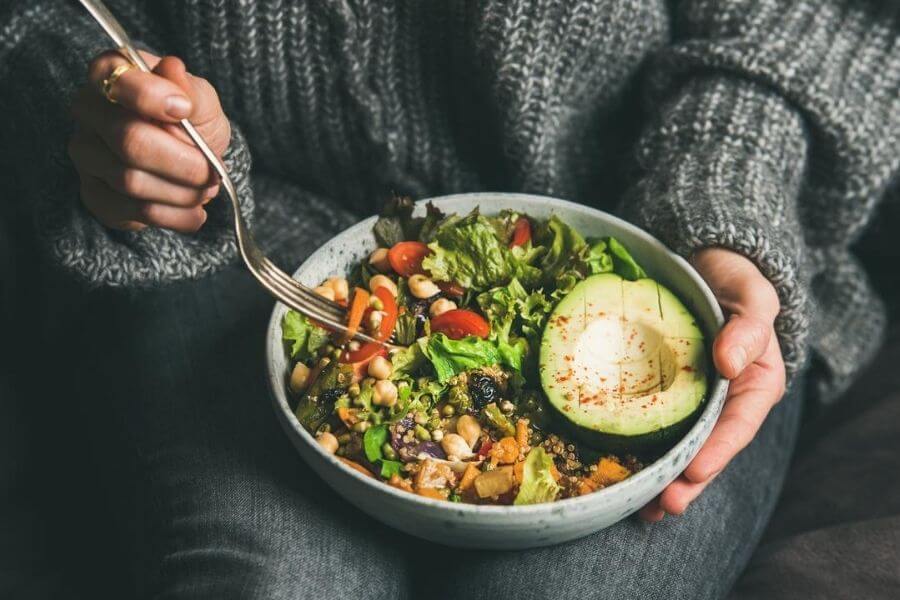You all are aware of proteins; it is one of the important macronutrients. They are the building blocks of our bodies. Proteins have structural as well as functional use. Nowadays, people blindly follow any diet with extremely high protein content, or just because someone gets good results, they will also tend to do the same.
Proteins Intake

Specific guidelines should be taken into account while calculating and taking proteins in the diet. A commonly asked question is, what should be the limit? So protein requirement changes with a person’s body type, activity level, phase of life, or any disease condition. We can’t give the same proteins to everyone. Commonly for the average healthy individuals, I mean to say is; people with normal BMI and not having any disease condition, then 0.8-1gm/kg body weight is the requirement of the body. For example, if a person weighs 60 kg, then he needs 60 grams of protein throughout the day.
An interesting thing about proteins is it help in weight gain as well as in weight loss. Proteins give us a feeling of fullness. For example, if you take a carbohydrate-rich breakfast like poha/upma after 2 hours, you feel hungry again but, if you combine any protein-rich source along with it, then satiety will be more. This is the reason why more protein-rich sources are included in the diet who want to reduce weight.
For bodybuilders or athletes, protein requirements will be on the higher side. These people need more calories; also, they do lots of strenuous physical activity. These people need 1.2-1.5 grams/kg body weight of proteins throughout the day. Again here, according to a person’s body requirement, protein intake will be decided. During the workout, there will be wear and tear of the muscles, so for the post-workout recovery, they would need more proteins. What level of high proteins is harmful is yet unclear.
Phase Of Life

In stages like growing age, pregnancy, and lactation, protein requirement is more than normal RDA. In India, most people have less protein intake, so that more malnourishment cases are seen. Malnourishment is linked with low immunity, so adequate proteins should be provided through diet.
Should I Shift To A Non-veg Diet To Fulfill My Protein Requirement?

It is a common doubt seen in people. These proteins are classified broadly into two types: Complete and incomplete proteins. Veg protein sources are dals and legumes, nuts, oilseeds, and milk and milk products (though they animal origin sources most vegetarian people consume them.) Except for milk, all are incomplete proteins, but we increase their bioavailability using a combination of cereals and proteins. For example, if we eat sprouts with chapatti/rice, then it will be a complete protein, plus we will get fibers as well.
On the other hand, the non-veg sources of proteins have high biological value. This will include eggs, chicken, fish, and mutton. They are having all the essential amino acids, so they are complete proteins. But all the animal protein sources are rich in fats also. So here, cooking in less quantity of oil helps in gaining healthy proteins.
To fulfill your protein requirement, one must include protein-rich sources in the diet because vegetables, fruits, or cereals will hardly provide any proteins.
One example is if you have one glass of milk, two katories of dal/sprouts, two egg whites, and one fistful of nuts OR 1 glass of soymilk, ½ katoripaneer, one big piece of chicken/2 small pieces of fish, and one big Katori of curd will provide you approximately 40-50 grams of proteins and rest you will get from other minor sources.
Disease Condition
If a person is suffering from kidney disorders (not on dialysis), then there will be protein restriction as excess protein degradation will increase the load on kidneys. For this patient, 0.8gm/kg body weight is the limit. For hypertensive people, there is protein restriction as protein tends to bind water and retain it.
When To Take Proteins?

Every major meal should have at least one source of protein. Proteins are needed for building our immunity as well. An extremely high protein diet without a prescription can have other side effects. A high protein diet may lead to flatulence, gases, indigestion, or bloating.
High Protein Supplements

Nowadays, it is a common term used, but as a dietician, everyone should ask one question to us, “is it really required?” People have started taking supplements without knowing their contents. Even for small children, we tend to give supplements. For this, we need to calculate the current protein intake by the person. It is possible to modify the diet to incorporate more proteins.
The only thing we need to focus on is choosing the right protein sources in the right amount. Here people will need the guidance of a certified dietician. Supplements support our diet, but for that, our basic diet needs to be healthy and nutritious. In cases where diet cannot be provided in the required amount, then the role of supplements will come.
Given the above discussion, it is not important to know the importance of proteins but to understand their limits.







